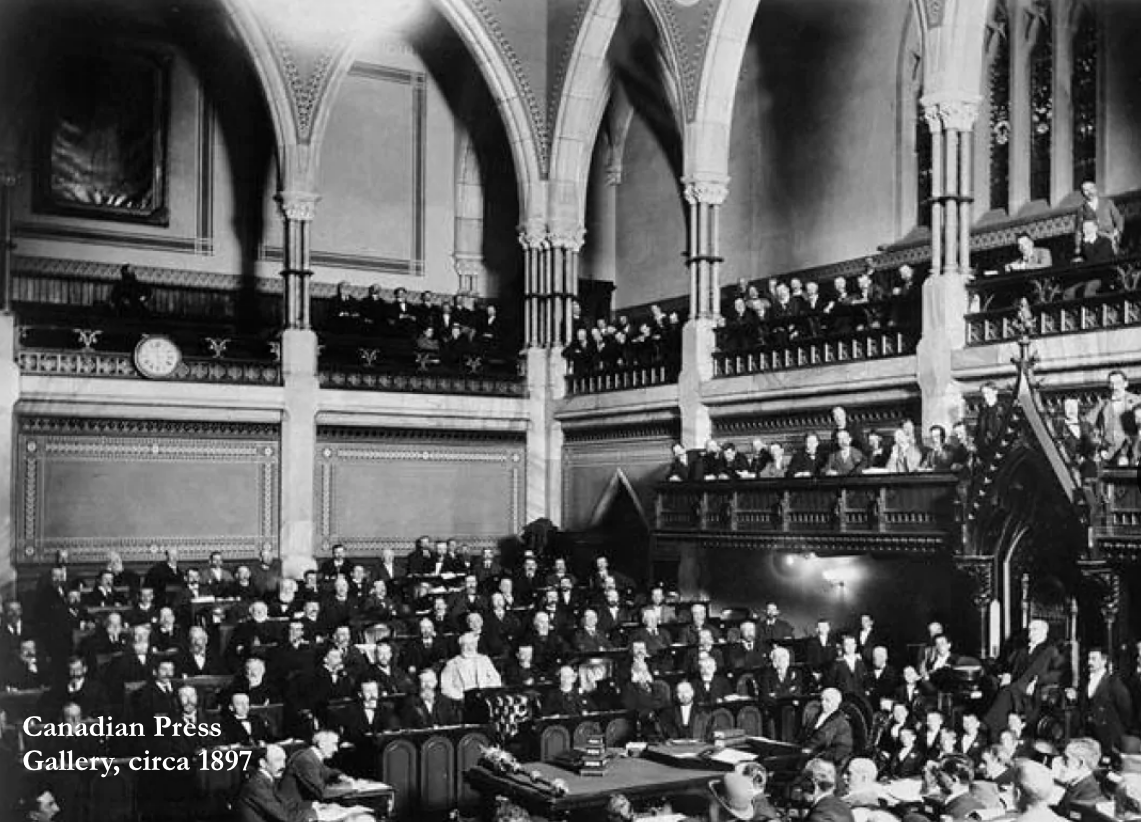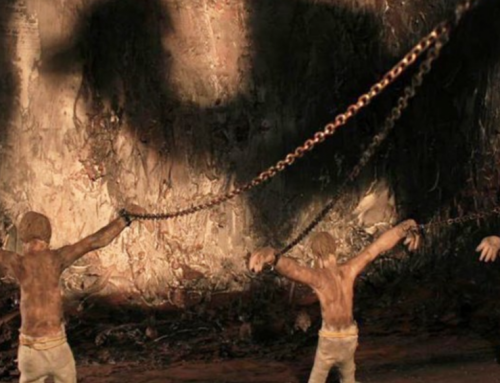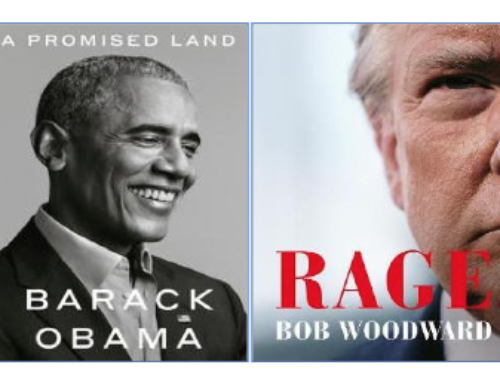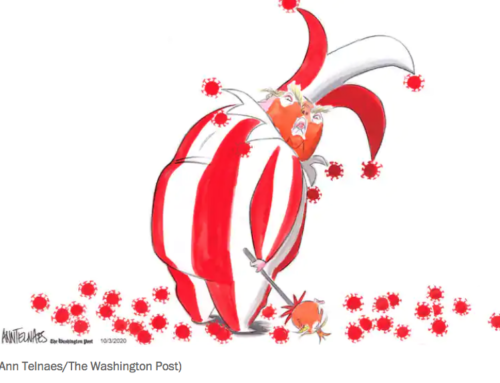Canadian democracy in decline: An essay
(7 min read)
“All politics is local.” – Tip O’Neill
I remember the day, November 27, 2017. A Monday morning. The sky was blue, the coffee fresh, my adrenalin flowing. I said to my computer, “Today’s the day.”
For two years, I’d been writing a column in the daily newspaper, Northumberland Today––as a volunteer––and the work had drawn me into a miscellany of community affairs, providing a window into the political maxim, “All politics is local.”[i] I also aired a commentary on the hometown radio station. I was part of the community, living the small-town life and working at the grassroots of the fourth estate––and lovin’ it.
That fourth estate was alive and well in Northumberland County. Or so I thought.
Follow the money.
I’d just written and submitted an investigative exposé for the newspaper on financial mismanagement in the municipality of Port Hope, Ontario, about an alleged, decade-long, multi-million dollar cover up. After dozens of interviews, tireless work by citizens – and their steadfast support – and digging through a decade of documents, I awaited publication of, Follow the Money: What’s $10 Million Between Friends and Neighbours? Part one, of four, was scheduled to run the next day, Tuesday.
In 1787 (I looked it up), Edmund Burke, sitting in the British House of Commons, said there were, “Three Estates in Parliament; but, in the Reporters’ Gallery yonder, there sat a Fourth Estate more important far than they all.”[ii] It was a historic observation on how the press would be a voice for the people in democracy. Since then, the fourth estate has grown exponentially and today is far more powerful “than they all.” It has become, in part, the tail that wags the dog. The other three estates of the realm, known in Burke’s time as nobility, clergy and commoners, are now a hodgepodge of definitions that I categorize as governments, elites and the rest of us, all dependent on the global, 24/7 sweep of media.
All the News That’s Fit to Sell.
Today, the “Reporters’ Gallery yonder” has morphed from a free press representing the voice of the people to, largely, a captive press representing the invisible hand of economic interests. Despite capitalism’s creation of extraordinary growth, it has likewise eroded the fourth estate and our society’s most fundamental cornerstone, democracy. James Hamilton, author of All the News That’s Fit to Sell: How the Market Transforms Information into News put it bluntly, “News emerges not from individuals seeking to improve the functioning of democracy but from readers seeking diversion, reporters forging careers, and owners searching for profits.”[iii] Capitalism habitually abdicates democratic values?
46% of Canadians describe our democracy as getting weaker
In November 2017, I experienced, first-hand, how the roots of the fourth estate were exposed to the rapacious winds of capitalism. And what happened back then was reinforced for me in December 2019, in the Munk Debates in Toronto. Washington Post columnist and publisher of The Nation, Katrina vanden Heuvel, argued for the ‘pro’ side: ‘Be it resolved the capitalist system is broken.’ She said, “Capitalism is often equated with freedom, free markets, and democracy, but … it is consuming democracy and destroying nature.”[iv] Fellow debater, Yanis Varoufakis, a Greek economist, added, “We need to democratize economic life, democratize the way corporations are run, democratize finance––in order to save democracy.”[v] Here were leading minds debating what I had witnessed in Northumberland: Capitalism’s predatory nature and how it subjugates democracy by tearing up the roots of the fourth estate. This systemic problem is reflected in the fact that nearly half (46%) of Canadians describe our democracy as getting weaker.[vi]
At the heart of Northumberland, an hour east of Toronto, are the historic towns of Port Hope and Cobourg, nestled in the rolling hills along the shores of Lake Ontario. The towns are a forced-blend of big urban injected into small rural––big box stores crowding out struggling shopkeepers, small-to-middling companies providing declining employment and a cohort of Toronto commuters and retirees. It’s a ‘Pleasantville’ lifestyle, dependent on two municipal councils, an assortment of earnest politicians, a community newspaper, two radio stations and local cable television.
“The key to its secret is the involvement of the citizen.” – John Ralston Saul
Northumberland Today had a crackerjack editor, a couple of reporters, a scrambling advertising rep and a deluge of flyers, coupons and junk mail, all dedicated to keeping the newspaper vibrant, despite running on the nervous edge of economic viability. Undaunted, the staff reported the news, kicked democracy’s tires and informed the community. They were, to slightly modify Marshal McLuhan’s saw, the medium and the message, the fourth estate fulfilling its place in the democratic process and fighting to fulfill the citizens’ right to be informed. I opined on scrums between citizens and politicians and practiced the caveat in John Ralston Saul’s definition of democracy: “The key to its secret is the involvement of the citizen.”[vii]
One day, a political brouhaha rolled into Port Hope and reaffirmed the connection between Ralston Saul’s principle and Edmund Burke’s legacy. It was known as the mega-incinerator debacle. On one side, concerned citizens, on the other, an incapable council trapped on the hamster wheel of rising property taxes, and short on sources of revenue. Then, what to their weary eyes should appear but a mega-incinerator proposal with tons of garbage to burn and commensurate revenues to collect. They planned to plunk it down, smack-dab in the middle of low-tax-producing green pastures and generate a windfall of new revenue––and a wind full of new toxins. It was tax heaven for politicians, pollution hell for residents.
Grassroots democracy at its best.
Up sprouted the lawn signs and citizens’ protests in opposition to the political and economic rationale. Local media delivered full coverage. Citizens joined the frontlines of the democratic fervor, rallying around ecological values and citizens’ rights to resist corporate clout and political chicanery. The local reporters’ gallery – there was little interest from national media – was alive and well and I wrote op-eds challenging citizens to get involved and demanding politicians make their case. After a protracted battle, the citizens won. Northumberland was assured its blue skies would not be clouded with cumulus garbage. It was grassroots democracy at its best.
Fast-forward to that Monday in November 2017. My $10 million exposé never ran.
“If you believe, as we do, that the quality of a democracy is a direct function of the quality of the information citizens have to make informed decisions, then this trend is very worrisome.” – John Honderich, Torstar
Postmedia Canada and Torstar Corporation shuttered Northumberland Today, “effective immediately.” In Ontario, three daily and eight community newspapers closed with nearly 300 people losing jobs. Paul Godfrey and John Boynton, CEOs of Postmedia and Torstar, respectively, rationalized the decision with the predictable, banal spin. Godfrey said, “This transaction allows Postmedia to focus on strategic areas and core products.” Boynton said, “This transaction will allow us to operate more efficiently …”[viii] blah, blah, blah. Hell, these were cut-and-paste statements right out of the corporate playbook and, more telling, ignored what Torstar chair, John Honderich, had said in 2016 to the Canadian Heritage committee. “If you believe, as we do, that the quality of a democracy is a direct function of the quality of the information citizens have to make informed decisions, then this trend is very worrisome.”[ix] This is ‘exhibit A’ of corporate double-speak in the furtherance of profits and the devaluing of democracy.
During this disruptive time, Heritage Minister Mélanie Joly stated the federal government had “no interest in bailing out industry models that are no longer viable.” That’s just more platitudes. Union leader, Jerry Dias, had the most salient comment, “You put money into journalism. That’s what the issue is.”[x] That’s perspicacious.
Plywood delivers a better, short-term return on investment.
Northumberland Today got plywood windows because plywood delivers a better, short-term return on investment than democracy. Such short-sighted, top-down, corporate-think ignores the fact that democracy is capitalism’s safety net and “the key to its secret is the involvement of the citizen.” Look no further than the coronavirus pandemic to understand the imperative of bottom-up, grassroots thinking, information and participation. And how it can turn deadly when we don’t get it.
Hardcore capitalists might dismiss the idea that democracy is somehow their responsibility but surely, they understand the axiom, “If the roots whither, the tree will die.” If 46% of Canadians believe democracy is weaker and municipal election turnout is abysmally low (e.g., Ontario 38.29%),[xi] that’s tangible evidence that the roots of the grand tree of democracy could be in the autumn of its years.
“Newspapering is a business these days––maybe forever more (my italics)––and it is their [journalists] bad luck to be in a business managed by bean-counters.” – Dalton Camp
In 1995, Dalton Camp presciently wrote, “Newspapering is a business these days––maybe forever more (my italics)––and it is their [journalists] bad luck to be in a business managed by bean-counters.”[xii] Twenty-five years later, Camp’s harbinger has mutated from “bad luck” to a clear and present danger. Did I mention Postmedia is owned by bean-counters at a U.S. hedge fund?[xiii]
Community newspapers aren’t the only victims of capitalism’s calculus. Public broadcasting and the CBC have been a second-thought for decades and yet, at its founding in the 1930s, pioneer broadcaster Graham Spry said, “There can be no liberty complete, no democracy supreme, if the commercial interests dominate the vast, majestic resource of broadcasting.”[xiv] Spry’s “majestic resource” includes Burke’s “Reporters’ Gallery yonder.”
Unfortunately, the recent broadcasting report by the Legislative Review Panel, although recommending strong action, foretells that the fourth estate will continue to be driven, above all else, as a profit-centre, not a “majestic resource.” The Globe and Mail said the review “is both brave and practical,”[xv] but those working at the grassroots of media do not see much that’s ‘brave’ or ‘practical.’ According to Cathy Edwards, executive director of the Canadian Association of Canadian Television Stations and Users, it lacks an understanding of community media, “that discussion is almost entirely missing … legislators don’t get it.” There’s little development of local voices in the “democratic discourse.” National Campus and Community Radio Association’s Barry Rooke added, “Community voices can be drowned out by money.”[xvi]
“These are times for greatness not for greed.”– Katrina vanden Heuvel
As posited at the Munk Debate, we need “what will best protect our democracy and economy.”[xvii] Why not reimagine capitalism from what Katrina vanden Heuvel called, “a very shallow view of life”[xviii] to a grand view of our nation? Don’t throw it out, transform it to better serve the democracy it benefits from––and needs. Resurrect the fourth estate to its requisite place in democracy.
Democracy and the fourth estate can thrive at the heart of our communities. I’ve ‘been there, done that.’ Lived it. I’ve also seen it torn from its roots, from the citizenry, not because they didn’t need and value it, but because capitalism didn’t need and value it. That must change!
Katrina vanden Heuvel challenged capitalism: “These are times for greatness not for greed.”[xix] I add. Because greed is an investment in plywood, greatness an investment in democracy, in the grassroots of the fourth estate––in the “Reporters’ Gallery yonder.”
Footnotes:
[i] O’Neill, Tip, All Politics Is Local (Nov. 30, 1993), Bob Adams Inc. Holbrook, Mass.
[ii] Carlyle, Thomas, “Lecture V: The Hero as Man of Letters. Johnson, Rousseau, Burns”, p. 115, (19 May 1840). On Heroes, Hero-Worship, & the Heroic in History. Six Lectures. Reported with emendations and additions (Dent, 1908 ed.). London: James Fraser. p. 392.
[iii] Hamilton, James, All the News That’s Fit to Sell: How the Market Transforms Information into News, p. 144 (2004), Princeton University Press, Princeton, NJ.
[iv] Munk Debate, Capitalism (Dec. 4, 2019) https://munkdebates.com/debates/capitalism – Katrina vanden Heuvel, transcript, p. 9
[v] Ibid, Yanis Varoufakis, transcript p. 37
[vi] The Samara Centre for Democracy, 2019 Democracy 360, p. 3 (March 26, 2019). https://www.samaracanada.com/research/2019-democracy-360, The Samara Centre for Democracy, Toronto, ON.
[vii] Ralston Saul, John, The Doubter’s Companion, p. 94 (1995) Penguin Books, Toronto, ON.
[viii] Kopun, Francine, Torstar, Postmedia announce community and daily paper deal (Nov. 27, 2017), TheStar, https://www.thestar.com/business/2017/11/27/torstar-postmedia-announce-community-and-daily-paper-deal.html
[ix] Ibid
[x] Ibid
[xi] Association of Municipalities Ontario, 2018 Ontario Municipal Elections, https://elections.amo.on.ca/web/en/home
[xii] Camp, Dalton, Whose Country Is This Anyway? P. 146, (1995), Douglas & McIntrye, Vancouver/Toronto.
[xiii] Carney, Brian, More Fuel for Investigation into Torstar, Postmedia Newspaper Swap, (Dec, 4, 2018), The Tyee, https://thetyee.ca/News/2018/12/04/Investigation-Torstar-Postmedia-Newspaper-Swap/
[xiv] Roby, Marc, Creating the CBC in order to build a nation (Nov. 9, 2011), rabble.ca https://rabble.ca/news/2011/11/creating-cbc-order-build-nation
[xv] Taylor, Kate, The Broadcasting and Telecommunications panel’s recommendations: brave, practical and with no ‘Netflix tax, (Jan. 29, 2020), Globe and Mail, https://www.theglobeandmail.com/arts/television/article-the-broadcasting-and-telecommunications-panels-recommendations-brave/
[xvi] Fenner, Victoria, Community media absent in the ‘Canada’s Communications Future’ report (Feb. 6, 2020), Rabble radio podcast, https://rabble.ca/podcasts/shows/rabble-radio/2020/02/community-media-absent-canadas-communications-future-report
[xvii] Munk Debate, Capitalism (Dec. 4, 2019) https://munkdebates.com/debates/capitalism – Katrina vanden Heuvel, transcript, p. 10
[xviii] Ibid, transcript, p. 25
[xix] Ibid, transcript, p. 35







Leave A Comment